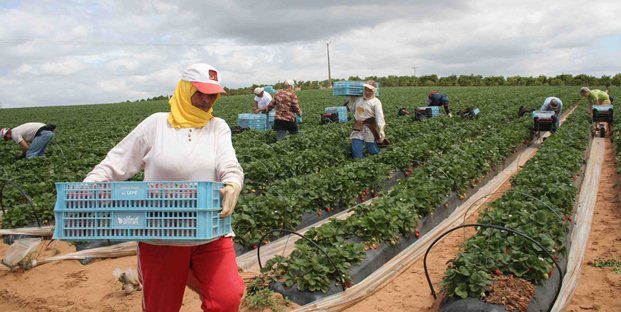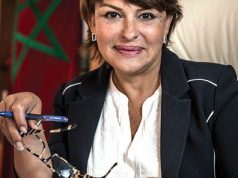
King Mohammed VI addressed on Monday November 30th 2015, a speech at the 21st Conference of the Parties to the UN framework on climate change, held in Paris, which was read out in his presence by Prince Moulay Rachid.
As relayed by the Moroccan Ministry of Foreign Affairs, here follows the full text of the address:
“Mr. President,
Distinguished Heads of State and Government,
Mr. Secretary General of the United Nations Organization,
Your Excellencies,
Ladies and Gentlemen,
Our meeting today in Paris is not and can no longer be one of those Summits and Conferences the community of nations regularly puts on the agenda of international relations.
Allow me to say frankly that it will no longer be the case because the Paris Conference, and the one my country has offered to host in a year’s time in Marrakech, will be instrumental in shaping the future which we are duty-bound to bequeath to our children.
Our children whom we do not want to see deprived of forests, oceans, coastlines and all these natural resources which are the hallmarks of mankind’s most valuable heritage.
A heritage which is threatened today because the international community has been unable -or unwilling- to come together in time and muster the means needed to have better control over its own destiny.
Today we are aware of the devastating effects of global warming on the planet and of the urgent need to match words with deeds.
Your Excellencies,
Ladies and Gentlemen,
What is at stake in our discussions is neither ideological nor diplomatic, it is not even economic in the traditional sense of our previous discussions and meetings.
We all realize now that the threat is global. Indeed, there is not a single country, region or continent that will be spared the consequences of climate change.
Doubt and skepticism are no longer acceptable. Nor will it be possible to continue using the alibi of wrong priorities.
The community of nations has turned its back on our children’s destiny and future for far too long.
For a long time, we have chosen to turn a blind eye. For far too long, we have delayed the moment of awareness. We have been playing around with hypotheses that have proved to be ways of evading the issue.
But facts are stubborn things. Ice sheets are melting. Sea and ocean levels are rising. Shores are gradually being eroded. Water resources are becoming scarce, agricultural output is threatened. Increasingly deadly floods come on the heels of droughts that are just as distressing.
That is why I have deliberately chosen to avoid technical analysis or academic discourse. Instead, I want to pay tribute to the scientists and specialists who are experts in the field.
We have to make sure that unanimity – which is not easily and instantaneously attainable in this area – does not become a deal breaker that would justify foot-dragging by some and the illusions arising from the inaction of others. In this respect, we must build patiently and resolutely on what is possible and attainable. It is only through effective action and tangible results that we can overcome reluctance and resistance.
Your Excellencies,
Ladies and Gentlemen,
In keeping with this perspective – that of realism, anticipation and action – I should like to mention the strategy the Kingdom of Morocco has been implementing for more than half a century.
Let us begin with water, the source of life and a crucial, daily concern for Moroccans. What would have become of Morocco in this respect, had it not been for the dam-building policy, which is a ground-breaking, far-sighted policy initiated in the early 1960s by my revered father, His Late Majesty King Hassan II. May he rest in peace.
Recognizing the importance of this key accomplishment for Morocco’s future, I have sought to reinforce it, and as a result Morocco now has 140 large dams, nearly a third of which have been built during the last 15 years.
Thanks to this policy, Morocco is dealing successfully with the effects of drought whereas, in some developed countries, a mere delay in seasonal rainfall gives rise to a warning that an exceptional, severe drought is feared.
The Kingdom’s committed action in this respect is also illustrated by the development of watersheds which make it possible to channel water without destroying or disrupting ecosystems.
Morocco has also developed a responsible fisheries policy, which it defended – albeit with some difficulty – when negotiating with its partners, to protect its fish stocks.
Wassalamou alaikoum warahmatoullahi wabarakatouhou.“





